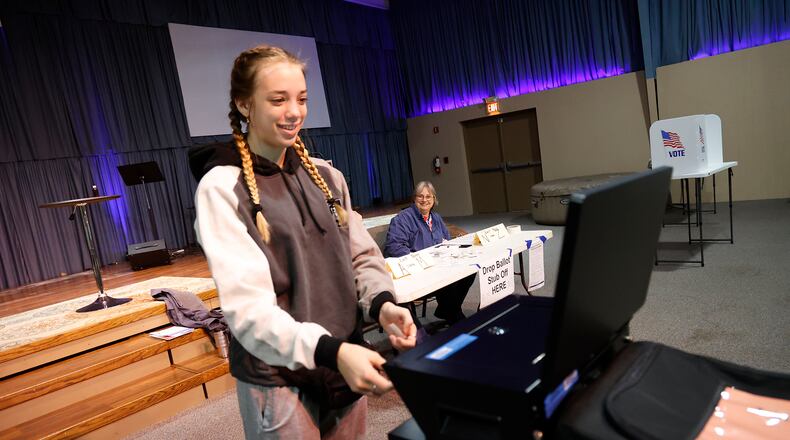Sponsored by state Rep. Thomas Hall, R-Madison Twp., the bill started out to “rid ourselves of low-turnout special elections” in August that usually seek to raise taxes, said state Sen. Theresa Gavarone, R-Huron. Future August special elections would only be allowed for a local government or district that’s in a “state of fiscal emergency.”
Senators added much more in committee.
The first change was tacking on provisions from Gavarone’s own Senate Bill 320, requiring a photo ID to vote and providing a free state ID to anyone over age 17 who doesn’t have a driver’s license or other valid photo ID, she said.
Gavarone called it the “first step of many” in changing Ohio voting laws.
Many other additions to HB 458 mirror provisions in HB 294, sponsored by state Reps. Bill Seitz, R-Green Twp., and Sharon Ray, R-Wadsworth, that bogged down in a House committee two weeks ago.
Other provisions of the Senate version include:
- Cutting the period for county boards of election to receive mail-in absentee ballots from 10 days after an election to four.
- Requiring absentee voters to provide a driver’s license or state ID number, the last four digits of their Social Security number, or other valid photo ID.
- Shortening the time for people who cast provisional ballots to prove their eligibility from seven days to four.
- Changing the deadline for absentee ballot applications from three days before Election Day to seven days.
- Limiting the use of absentee ballot drop boxes to one location per county, at a board of elections office.
- Prohibiting in-person absentee voting on the Monday before Election Day, but distributing those hours among previous days.
- Allowing curbside voting only for the disabled who can’t enter a polling place.
Democrats denounced the bill as unnecessary and “just plain wrong.” State Sen. Paula Hicks-Hudson, D-Toledo, quoted Republican Secretary of State Frank LaRose on the fairness and security of Ohio’s elections. In particular cutting the time for counties to receive absentee ballots risks discarding votes postmarked by Election Day but that the postal service hadn’t yet delivered, Hicks-Hudson said.
Remote pharmacies
A bill to allow pharmacies to fill prescriptions remotely passed the Ohio House with little opposition. House Bill 645 is the next step after the legislature’s expansion of authorized telehealth services earlier this year, said the sponsor, state Rep. Mark Fraizer, R-Newark.
The bill would allow remote dispensing of drugs specifically to fill “pharmaceutical deserts” that don’t have a pharmacy location within 10 miles, he said. It allows supervised technicians to fill a limited number of prescriptions for a specific list of drug types following a telehealth consultation. Twenty-seven other states already allow this, Fraizer said.
State Rep. Adam Holmes, R-Nashport, said HB 645 may be of particular help to Ohio’s independent pharmacies that will “go where the big guys won’t.”
Chicks into gas
House Bill 507 started out as a bill to cut the minimum number of poultry chicks that can be sold as a lot from six to three. But the bill introduced by state Rep. Kyle Koehler, R-Springfield, didn’t stay that way.
A substitute Senate bill added a half-dozen amendments, most controversially one redefining natural gas as “green energy.”
“This is some straight-up bait and switch,” said Rep. Juanita Brent, D-Cleveland, when the House was asked to agree to the Senate changes.
Brent said she supported the original version but not the unrelated additions, and denounced the redefinition of natural gas.
Nevertheless, the House voted 59-33 to accept the amendments, sending the bill on to DeWine.
About the Author

